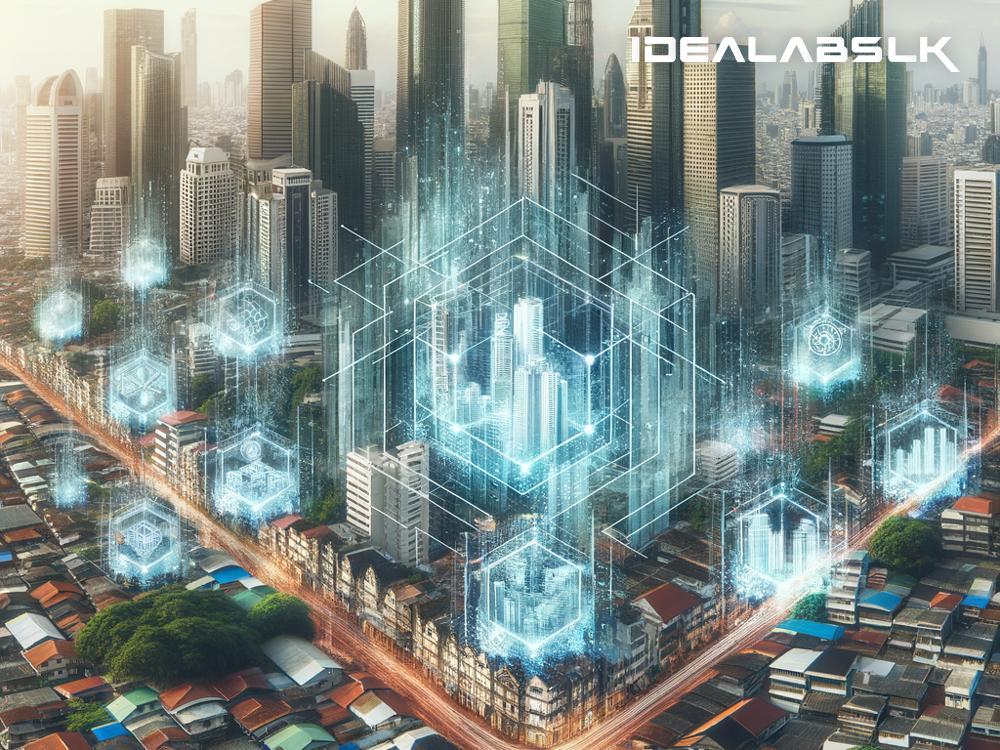Blockchain's Potential in Unlocking the Future of Real Estate Record-Keeping
In the ever-evolving landscape of technology, blockchain is a word that's been echoing throughout various sectors, promising to revolutionize everything from finance to supply chain management. But what about real estate? At its core, real estate is an industry built on records: deeds, titles, property histories, and more. It's complex, sometimes cumbersome, and surprisingly ripe for a blockchain makeover. Let's dive into how this technology can potentially transform the world of real estate record-keeping.
What is Blockchain?
Before we get ahead of ourselves, let's break down what blockchain is. Imagine it as a digital ledger, not too different from a spreadsheet or a diary, except this one is copied and spread across a network of computers. Every time a transaction happens, it's recorded in every copy of the ledger. What's revolutionary about it is that it's incredibly secure and almost impossible to hack, because to change any single record, you'd have to change every single copy of the ledger across all those computers, simultaneously.
The Status Quo in Real Estate
Currently, the process of buying or selling property involves a ton of paperwork, various intermediaries, and, most frustratingly, time. Documents need to be verified and reverified, and all this checking (and rechecking) doesn't come cheap. Moreover, in many parts of the world, the systems for record-keeping are outdated, fragmented, or both. This inefficiency and lack of transparency not only slow transactions but can also lead to errors and fraud.
Enter Blockchain
So how exactly can blockchain stir the real estate waters? Let's break it down.
-
Transparency and Security: At its heart, blockchain is transparent and secure. Every transaction on a blockchain is recorded with an unchangeable cryptographic signature. This means that once a property sale is recorded on blockchain, it's there for good, visible for anyone to see. This transparency reduces the chances of fraud, making the real estate market safer for everyone involved.
-
Efficiency and Speed: Because blockchain can streamline the process by removing the middlemen (like lawyers and brokers), transactions can be completed faster and more efficiently. This could mean reduced closing times on property sales, from months or weeks to just days or even hours.
-
Cost Reduction: With blockchain, many of the fees associated with real estate transactions (think of all those intermediary fees) could be drastically reduced or even eliminated. This could make buying and selling property not only quicker but cheaper.
-
Tokenization of Assets: This is a fancy way of saying that real estate, traditionally seen as a pretty illiquid asset (hard to convert into cash), could be easily divided into tokens that represent ownership. These tokens could then be bought and sold much like stocks on an exchange. This could open up the real estate investment world to more players, democratizing property investment.
Real-World Applications and Challenges
Several places around the world are starting to experiment with blockchain for real estate. For instance, countries like Sweden and Georgia have piloted blockchain projects for land registries. These initial forays are promising, suggesting that with the right implementation, blockchain could indeed make real estate record-keeping more efficient and secure.
However, there are obstacles. One of the main challenges is integration with existing systems. Many property records still live in old, fragmented databases—or worse, paper formats. Transitioning these into a blockchain-based system will require significant time, investment, and cooperation from various stakeholders.
Moreover, there is the issue of regulation. Governments and regulatory bodies around the world will need to establish frameworks that can accommodate this new technology while ensuring it's used responsibly and ethically.
The Path Ahead
Despite these challenges, the potential benefits of blockchain in real estate are too significant to ignore. By making transactions more transparent, efficient, secure, and affordable, blockchain has the power to fundamentally change how we think about buying, selling, and investing in property.
The path towards a blockchain-enabled real estate future is not without its hurdles. It requires collaboration between technologists, regulators, and the real estate industry at large. However, the potential rewards—in terms of efficiency, security, and democratization of property investment—make this journey one well worth embarking on.
As we move forward, the question isn't if blockchain will transform real estate record-keeping, but when. With its promise of a more open, efficient, and secure system, blockchain stands ready to unlock a new era in real estate—a future we're just beginning to imagine.

